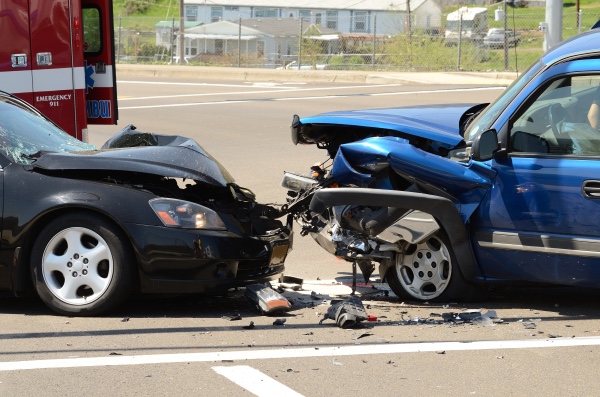
Table of contents
It’s a Friday night and a mother stays home to watch their youngest daughter because she has the flu while the father takes their son to his baseball practice. At first, everything seems normal as the father sends the mother regular pictures of their son practicing his batting. She smiles as she receives each one, thinking how lucky she is to have such an amazing husband and father to their two children.
She tucks her daughter into bed and heads downstairs to wait for her son and her husband to return. However, time suddenly seems to slow to a crawl as the hour gets later and there is no sign of them. She tries to rationalize it at first, saying that they stopped for ice cream or gas. But soon, the panic starts to set in, especially since her husband has ignored her texts and phone calls for the tenth time.
Suddenly, her phone rings but it is not her husband. It is her mother-in-law, in tears saying there has been a terrible accident. The wife gets the next-door neighbor to watch her daughter as she rushes to the hospital. There, she learns from the doctors and the responding police officers that her husband was struck in a head-on collision with a drunk driver, the father died on impact, and her son was in critical condition. The drunk driver had survived as well and was currently in surgery though he was predicted to make it.
Devastated, the mother finds her whole world shattering, the last thing she had received from her husband was a text from him with a picture, talking about how proud he was of their boy. Her husband’s life had been stolen from him in a matter of seconds, their family shattered, and her son’s life forever changed. All because someone decided to get behind the wheel inebriated.
It’s a story that no parent wants to hear but is unfortunately all too common in the State of Texas. According to the Texas Department of Transportation, in the State of Texas, an average of three people die a day due to a drunk driving accident. Drunk driving accounts for nearly 26% of all fatal traffic accidents. While each victim is unique, one thing that remains consistent is that every victim leaves behind loved ones who could have never imagined their lives without them. This is especially true when it is a child that loses a parent.
Understanding Texas H.B. 393: A Milestone in Impaired Driving Accountability

On September 1, 2023, the Texas Legislature set into effect a new law that requires convicted drunk drivers to pay child support if they were responsible for a child’s parent or guardian’s death. The bill, known as Texas House Bill 393 was signed on June 2nd, 2023 by Texas Gov. Greg Abbott.
The law states that those convicted of intoxication manslaughter must pay restitution to the victim’s child. The offender will be expected to make those payments until the child reaches 18 or when they graduate high school, whichever one occurs later.
Hernandez Law Group Insight: What Is Intoxication Manslaughter?
An individual commits intoxication manslaughter when they accidentally kill someone as a result of committing another intoxication offense, such as driving while under the influence.
How Does the Court Determine How Much Money the Offender Will Pay in Child Support?
The court will determine how much the offender will pay each month by using several factors. This includes the following:
- The financial needs of the child
- The financial needs of the surviving parent or guardian
- The financial resources the offender has
The offender will be required to pay all of the restitution, regardless of whether the payments were scheduled to begin or be terminated when the defendant was in prison or a correctional facility. If the offender is unable to make payments because they are incarcerated, they will still have to pay the restitution which can be eligible for a payment plan starting on the first anniversary of the date of their release.
Civil Restitution: A New Avenue of Justice for Affected Victims in Texas

The Texas H.B. 393 has completely changed the legal landscape concerning the children of parents who were killed in a drunk driving accident. Regardless of whether the child lost one parent or both parents, these children will now have continued financial support from the convicted offender. While this doesn’t replace the parent/parents that the child lost, it does guarantee that they are financially supported throughout their childhood.
Additionally, this bill decreases the likelihood that the single-parent or guardian family falls under the poverty line and becomes dependent on public assistance programs. Ensuring a stable source of financial support benefits the surviving child’s and parent’s physical, emotional, and financial well-being. This can alleviate future stress caused by financial uncertainty and hardships.
As another effect of the law, it also acts as a discouragement for individuals from choosing to get behind the wheel intoxicated. News Channel ABC interviewed Pamela Edwards, a member of the Brazos Valley Injury Prevention Coalition, in Brazos, Texas. Edwards lost her son Dillion in a drunk driving accident. He left behind two small children and a wife who were struggling with the financial strain of losing their father and husband. Edwards hopes that this new bill will help reduce the amount of drunk driving accidents and related deaths in the state of Texas. “The first case that happens I feel this will set a precedent with it and the courts will make a statement for people to know we are not playing around here – you have to make good choices when you decide to go out and drink.”
Navigating the Texas Legal Landscape: Hernandez Law Group’s Expertise

Losing a parent due to the reckless actions of a drunk driver is both financially taxing and psychologically devastating. Texas’s new H.B. 393 has created a ray of hope for families who are facing a very dark and grievous road to recovery. This bill ensures that children of victims are provided the resources they need to follow their dreams and live as fulfilling a life as possible.
The drunk driving accident attorneys at the Hernandez Law Group, P.C. understand that those responsible for recklessly deciding to get behind the wheel of a car while they are intoxicated need to own up to the consequences of their actions. Not only do they endanger themselves but they endanger every single other driver on the road and their families. The devastation that can result from a drunk driving accident can rob a parent of their child or a child of their parent. No matter who the victim of the drunk driving accident is, they have people at home who love and care about them and cannot imagine their life without them. If you or a loved one has been the victim of a drunk driving accident, the Hernandez Law Group, P.C. can help.
Our attorneys specialize in getting the compensation you deserve after your accident has been caused by a negligent party. Hernandez Law Group, P.C. is led by Juan Hernandez, who is board-certified by the Texas Board of Legal Specialization to practice personal injury law. This is a certification that only 2% of Texas attorneys have. With our attorney’s legal expertise, you can rest assured that you will get the compensation you and your family deserve after an accident.
If your loved one was killed due to a drunk driver, robbing you of their company and your child of a parent, we can also help you seek compensation for loss of consortium and emotional damages. Don’t try to navigate your recovery alone, and instead, turn to the Hernandez Law Group, P.C. Contact our attorneys today to schedule your free no-obligation consultation.
Interested in Learning More About the H.B. 393 Law? Here are additional resources:
- The Texan News: Texas Drunk Drivers Now Have to Pay Child Support If Crash Results in Death of Child’s Parent or Guardian
- Overview of Texas House Bill 393: by Legal Scan
- Texas School Safety Center’s Statement on H.B. 393 Bill
Frequently Asked Questions About H.B. 393
The H.B. 393 Law makes individuals who are convicted of intoxication manslaughter pay restitution to the victim’s child/children. The offender will be expected to make those payments until the child/children reach 18 years of age or when they graduate high school, whichever occurs later.
Child support payments will be determined by the financial needs of the child, the financial needs of the surviving parent/guardian, and the resources available to the offender. If the offender is unable to pay child support due to their incarceration, a payment plan will be set up one year from the date of their release. They will be expected to pay all of the late child support payments and continue paying child support until the child reaches 18 years of age or graduates high school.
The civil restitution created by the H.B. 393 bill is designed to ensure that the surviving child can have all financial needs met throughout their childhood. This includes considerations for the following factors:
1. The child’s financial needs
2. The surviving parent or guardian’s financial needs
3. The reasonable work-related childcare expenses of the surviving parent or guardian
If the child was left an orphan and has been placed with the Department of Family and Protective Services (DFPS), the restitution will be created to ensure that the following needs of the child are met:
1. The standard of living that the child is used to is maintained
2. The physical and emotional needs of the child are met
3. The child’s educational needs are met
4. The child’s physical and legal custody arrangements are covered
No. A family can receive both compensation from a drunk driving accident lawsuit as well as civil restitution from the criminal lawsuit that occurs. Both of these lawsuits fall under separate categories and are therefore not related to each other. The compensation that the family receives is to ensure that the damages, both physical (such as the loss of the vehicle and the loss of the loved one) and emotional (loss of consortium), are covered.
This ensures that the recovery for the family is made easier, ensuring that financial strain is kept to a minimum. Damages that can be recuperated through compensation are as follows:
1. Pain and suffering
2. Lost wages
3. Medical Expenses
4. Disfigurement
5. Physical impairment
6. Property loss
7. Mental anguish
8. Punitive damages
9. Loss of consortium
As a reminder, the civil restitution that comes from the H.B. 393 is to provide child support if the victim of the drunk driving accident passes away as a result of the accident and they have a surviving child. This child support will follow the child until they reach 18 years of age or graduate high school, whichever occurs later.
No. Restitution is a court-ordered payment that the offender has to make, regardless of whether they are incarcerated at the time the order is passed or if they would still be incarcerated by the time the child comes of age or finishes high school. All of the restitution must be paid to the parent/guardian or the child (if they are of age). A payment plan will be created for the offender to start payments a year to the date after their release from a correctional facility or prison.
